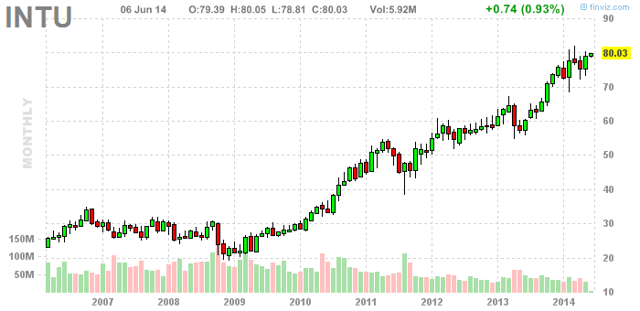Bill Sheridan for MACPA writes: As we gear up for the MACPA’s annualInnovation Summit on June 16, we thought this would be a perfect time to have a conversation about the future with some of the Summit’s most forward-thinking sponsorship partners.
We asked each of them to give us their thoughts on the trends that are impacting the profession, the changing role of CPAs, and how their relationships with CPAs might be changing as a result. We'll be featuring their answers here over the next few days.
Continuing the conversation are the folks from Tallie. Here's what they had to say.
=======
We all know the trends that are impacting the profession today – social, mobile, the cloud. What are the next big trends that CPAs need to pay attention to?
Tallie: From technology trends to company culture, exciting changes are on the horizon for all areas of the accounting industry. The most notable industry shift exists in technology offerings, particularly the evolution from SaaS (software as a service) to SWAS (software with a service). This means accounting software must be simple, easy to understand and operate, accessible across technology platforms, and delivered by experts.
In a recent study by The Sleeter Group, only 13.5 percent of small to mid-size businesses considered their accountant "ahead of the curve” in terms of technology usage inside their firm. Furthermore, 17.1 percent answered that their accountant is considered “behind,” and 59.6 percent said their accountant is “current” (What SMBs Want from Their Accountant, 2014). The time to get ahead is now!
More people are choosing a mobile platform to complete business matters. For Tallie, it was essential that we paid attention to this shift in order to remain relevant. We now know that our expense management software must be easily available, and effectively usable, on-the-go.
Additionally, new entrants are challenging established players in the CPA world. The CPA role is evolving from old-fashioned beancounter to a strategic advisor with a new, improve skill set. Newbie CPAs are fast, flexible, and strategic, bringing efficiency and innovation to traditional methods and processes. In a budding age of automation, these people represent the future of accounting for CPAs. We can see that agility is beginning to trump ability. As young people continue to leave the industry, the battle for talent will intensify. If CPA firms wish to remain relevant and competitive, they must acknowledge this reality and embrace the future of our industry. Doing so will breed tremendous success for small to midsize businesses and accounting firms alike.
Key takeaway: Progress begins with truth. You only begin to offer value by addressing the elephants in the room. Lean into technology trends that are revolutionizing the accounting industry.
How will the role that CPAs play change as time moves forward?
As time hurries on, the role of CPAs is undoubtedly changing. We’re seeing a shift in the CPA value proposition from tax and audit to client services, and it’s critical that current CPAs prepare accordingly for this change. Why? Because this means the CPA is becoming a more prominent player in day-to-day business decisions, and thus can be leveraged across a far more expansive audience beyond the accounting world.
To further explain the shift from tax and audit to client services, we can compare the differences of each role. Clients ask their technical advisor to answer technical “point” questions. Comparatively, clients ask their business advisor to help them run a better business. Additionally, the desired CPA skill set is evolving from GIT (generalist, individual contractor, tactical) to SLS (specialized, leadership-driven, strategic). Good leadership holds a clear vision and the proven ability to unify teams.
Key takeaway: CPAs need to identify whether they fulfill the traditional tax-and-audit value proposition or the forward-thinking client services role, and fully embrace their choice to remain leaders in their field.
Is your relationship to the profession changing as a result?
In many ways, Tallie is pioneering a corner of this industry-wide shift. Our expense report software strives to set an example for providing a seamless, end-to-end workflow solution for both small to medium-size businesses and the accounting BPO field alike. The Tallie engineering team worked closely to build the first real-time bi-directional QuickBooks Online integration that presents the opportunity to reinvent the client service value proposition.
We believe in saying final goodbyes to manual syncing of a widening array of third-party applications. We believe in users having real-time access to data across systems, including source documents. We believe in a complete cloud-based accounting workflow solution that’s best-of-breed and simple to implement. As a result, we created one that truly delivers on the BPO promise of lowered costs, higher efficiency, financial visibility and control.
Key takeaway: We believe Tallie serves as a catalyst to the shifting landscape for CPAs, by heightening their flexibility and deepening their value proposition in the evolving relationship between accounting and technology.
What’s the most important thing Innovation Summit attendees need to know about your business?
Top firms are acknowledging that company culture and good technology are more important than ever for recruitment and retention. So naturally, the primary blocker in behavior adoption is change management.
Tallie is expense software built for use. From data synchronization to approval control, Tallie is designed to create less work and generate immediate ROI. How? Tallie recaptures time value, creates transactional visibility, facilitates policy enforcement and fraud prevention, and so much more.
Key takeaway: The Tallie + QBO integration is the only complete solution for cloud-based expense management. We’ve created a helpful booklet detailing the integration that is available for electronic download. We invite all attendees of the MACPA Innovation Summit to explore the Tallie + QBO workflow solution to further establish themselves as leaders in the shift of technology for the accounting industry.
